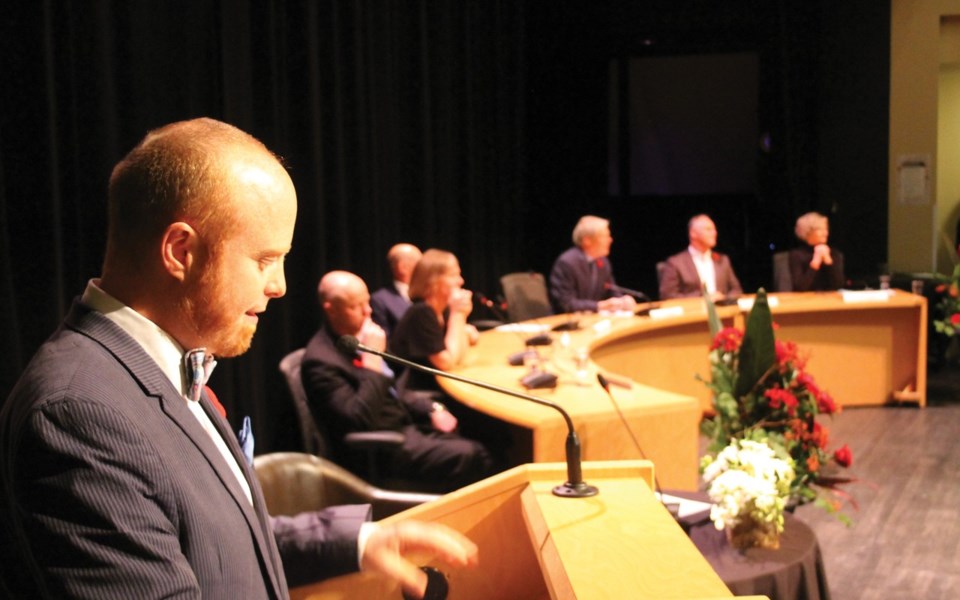
while whistler's parking and licensing fee revenue was up in the third quarter of the 2019 fiscal year (to the tune of $270,000), both were negated by a larger decrease in permit revenue.
"Fines are up, licenses are up, but the permits continue to trend downward," said director of finance Carlee Price, in presenting the resort's Q3 financial update at the Jan. 7 council meeting.
Price's Q3 update showed permit revenue fell by $489,000 over 2018 levels.
"This has been true for the entire year of 2019 and accelerated somewhat in the third quarter, so those three items together are now showing a year-over-year decline, whereas in the second quarter they were flat to slightly up," Price said.
That said, total revenue to the end of Q3 was up $9 million year over year, driven largely by Whistler's increase to its municipal and regional district tax rate (from two per cent to three per cent).
Nine months into the fiscal year, operating revenues were at 92 per cent and expenditures 74 per cent of their annual budgeted amounts, compared to 92 and 73 per cent in the prior fiscal year, respectively.
"Generally speaking the first nine months are in line with expectations," Price said, though she noted some "slightly unusual expenses" related to the finance and IT departments.
"In the case of finance, this had to do with an insurance renewal that came in above where we were expecting it, and in the case of IT it was software subscriptions, which can be lumpy and sometimes hard to predict," Price said.
Total expenses to the end of the third quarter were up $1.9 million year over year, she added.
"Keep in mind here that the fourth quarter is a big quarter for expenses; this is where a lot of our corporate expenses come through," she said.
"So we do not expect for the $1.9 million expense increase versus the $9 million revenue increase to sustain through the full year."
Project spending through the end of September was at 37.7 per cent of total budgeted amounts, which is "about in line with where it typically stands" at that point in the fiscal year, Price said.
"The second half, as you know, is typically a busy period for both project spending and invoicing, and it tends to represent about 70 per cent of full year amounts—that's full-year spending, not full-year budgets," she said.
"Substantial completions in the third quarter included some of our trail programs, as well as some work on the sewer trunk main and then the sewer annual upgrades."
Investment income for the first nine months of the fiscal year was $2,634,394 (unaudited)—100 per cent of the total budgeted investment income for the year.
Most of Whistler's investment income is allocated to reserves to fund future expenditures, though some gets allocated to operations throughout the year, according to the report to council.
Whistler's 2020 budget includes a 2.8-per-cent property tax increase along with two-per-cent increases to sewer, water parcel and solid waste fees.
The relative change of the value of your property will determine whether your tax bill increases or decreases; assessment notices are being mailed to property owners this month (see related story on page 16).
While Whistler and Pemberton's average valuations are going up, much of those in the Lower Mainland are decreasing, noted Mayor Jack Crompton at the meeting.
"As a community I think we do well to pay close attention to changes like these ones released by BC Assessments," Crompton said, adding that he's pleased that Whistler's new Strategic Planning Committee is working on models to understand trends financial and otherwise.
"I encourage Whistler business owners to be attentive to these kinds of economic shifts," he said.
"I'm eager to hear thoughts from our community on what these kinds of changes and others mean for us. If you have thoughts about what these BC Assessment changes, especially in the Lower Mainland, could mean for us, please feel free to reach out to me at [email protected]."



